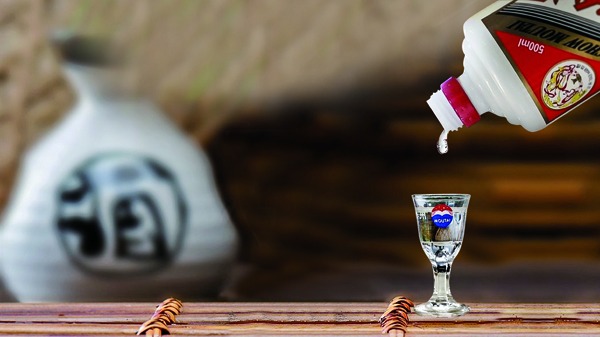Moutai, the most popular liquor in China and the country’s best-known alcoholic export to the world, has recently been riding on a wave of renewed vigour and vitality. Once solely circulated in rarefied political and business circles as a must-have high-value gift, its recent popularity among a broader audience has seen its brewer, Kweichow Moutai, the country’s largest liquor producer, become one of the largest corporations in the world, comparable in size to Japan’s Toyota Motor.
The company has achieved outstanding milestones both in China and internationally, getting ranked the largest listed corporation in China’s almost-US$10 trillion stock market and one of the world’s largest with a market value of over US$300 billion.
Kweichow Moutai’s great fame and fortune stem mainly from its various unique qualities, principally its complex aroma and taste. Every drop of this brew is an amalgamation of more than 155 different flavours and aromas. Some of these aromas include wheat, grain, soy sauce, ripe bananas, malt beer, yeast, citrus, strawberries, mango, coconut, chocolate, caramel, tobacco, smoke, a grassy-green spiciness, floral aspects, roasted walnuts and mint.
Moutai is an organic distilled spirit produced under very stringent and meticulous conditions on a government-protected brewing environment on the eastern bank of the Chishui river that rises between 420 and 550 metres above sea level. Because of its unique geological location, with a special micro-climate and the presence of the clear and pure Chishui water, the Moutai spirit gets its distinctive and multi-dimensional flavour.
The unique climatic production conditions in the town of Moutai in Guizhou province are found nowhere else in China. Due to its restricted regionality, and inability to be replicated anywhere else, Moutai is a limited and highly sought-after natural resource. The Chinese government protects the Moutai region by ensuring that no chemical factories are set up near the ‘Fine Wine River’ that runs through the town, particularly as the water from this river is deemed very crucial to the distillation process of the spirit.
Currently distributed and sold across the world, including North America and Europe, Moutai is a pure organic product the production of which involves a very stringent and meticulous process. Its unique raw ingredients are harvested according to the lunar calendar and distilled with a technique similar to perfume making. The process involves nine distillation sessions, eight filtration sessions, seven fermentation sessions and numerous maturation and blending traditions. It is this intensive and unique distillation process that bequeathes the spirit with its lingering aftertaste and long-lasting fragrance.
Moutai’s long and distinguished history dates back over 2,000 years, but it was during the Qing Dynasty (1644-1912) that Chinese distillers first introduced the unique, advanced techniques for processing the modern incarnation of this distinctive type of liquor, eventually leading it to become the first Chinese brew to be produced in large volume. The government then consolidated the numerous distilleries into one state-owned company, Kweichow Moutai, in Guizhou in southwest China, where liquor distillery has been a long-celebrated tradition.
Moutai’s top-notch quality is amply recognised in the international market for decades. In 1915, the Chinese brew notched the gold prize at the Panama-Pacific Exposition in San Francisco, California, and it shares the title of the world’s top three distilled liquors, with Cognac brandy from France and whisky from the Scottish Highlands. Moutai, though, stands out from cognac and whisky as yeast is distilled during its distillation process and it is the only one that uses solid grain material in the fermentation process that makes it more special and unique.
Back home, Moutai has garnered different distinctions, including getting adjudged in 1951 as China’s superior liquor. Over the years, it has emerged as the ultimate gift for special people and occasions, and it enjoys the rare privilege of being the only alcoholic beverage presented as official gifts by Chinese embassies in foreign countries and used on many official occasions with foreign heads of state.
Moutai pairs well with any Chinese cuisine, but it also compliments culinary dishes like Korean grill, Japanese sashimi, and caviar. The first exposure of many Westerners to baijiu, or distilled Chinese liquor, often comes through a pairing of Moutai with food, a practice particularly advisable for first-time baijiu drinkers. The strength and potency of the spirit can be intolerable when consumed as a straight shot. Combining baijiu with food softens the strength of the alcohol, and enables an unaccustomed stomach to digest it better.
Baijiu and food are linked very closely to the territories in which they are produced. Different Chinese provinces will have different preferences toward baijiu. Depending on where a meal is taking place, Strong, Light, Rice or Sauce Aromas baijius will be served, accompanied by a range of traditional dishes from this same area.
With Moutai’s continued popularity, it is very likely to achieve more milestones in the coming years.







